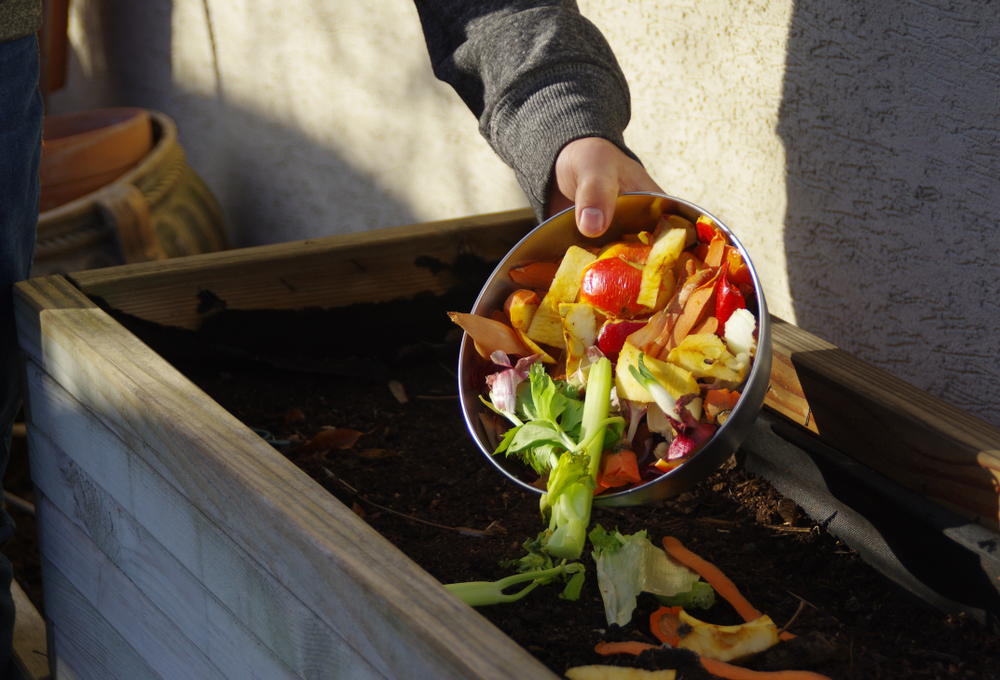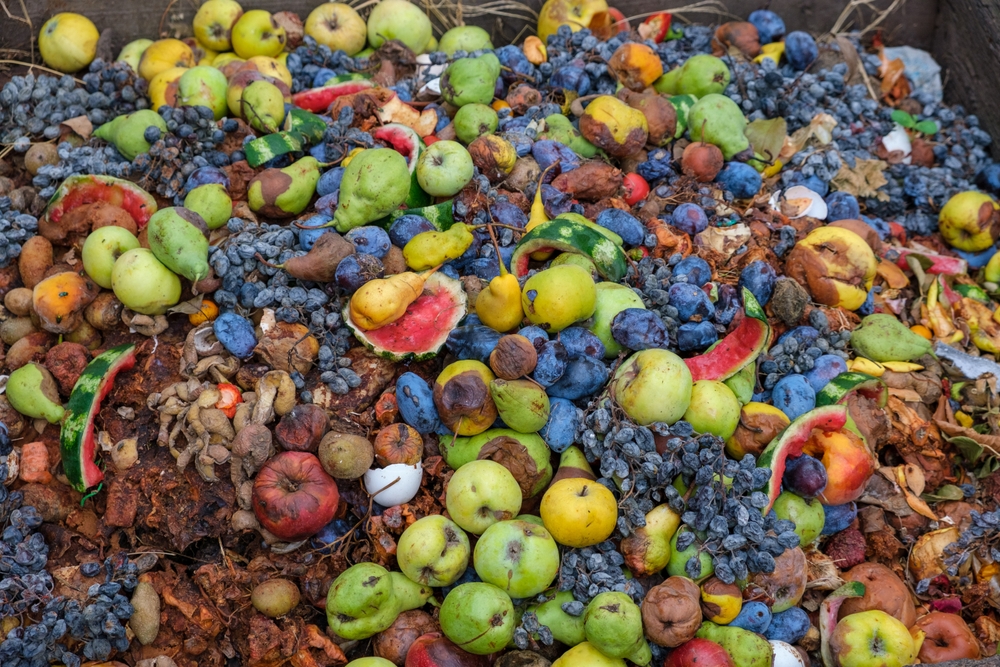
Image Source: Shutterstock.com
Step outside on a crisp autumn morning and take a deep breath. The air feels cooler, cleaner—and yet, if you wander near your compost pile, there’s something different in the scent swirling through the air. It’s not the sharp, earthy punch of midsummer compost or the heavy, swampy funk of early spring. Instead, it’s richer, muskier, almost nostalgic—like damp leaves meeting warm soil after a drizzle.
You might not realize it, but compost actually does smell different in autumn, and it’s all thanks to nature’s quiet chemistry lesson happening right under your nose.
The Temperature Tumble Transforms Everything
When temperatures dip, your compost pile enters a whole new phase of life. Microbes that thrive in summer heat start to slow down, giving way to cooler-weather bacteria and fungi that work at a gentler pace. These shifts in microbial populations mean your pile isn’t cooking as furiously—it’s more like a simmer than a boil. With less heat, there’s less evaporation, which means the earthy aromas stick around longer and richer. The result? A compost pile that smells more like forest soil after rain than rotting kitchen scraps.
Falling Leaves Bring a New Ingredient Mix
Autumn doesn’t just cool the air—it changes the recipe. Those crunchy, colorful leaves tumbling from your trees are more than decoration; they’re carbon gold. When you rake them into your compost, they mix with leftover grass clippings and summer’s kitchen waste to create a fresh balance of browns and greens. As they break down, they release subtle tannins and organic compounds that shift the scent from sharp and sour to sweet and woody. If summer compost smells like a barnyard, autumn compost smells like a forest floor ready for mushrooms.
Moisture Levels Hit the Sweet Spot
Here’s another secret: autumn rain is compost’s best friend. After the dry heat of summer, moisture returns to the air, keeping compost damp but not drenched. That perfect level of humidity helps microbes thrive without drowning them. Too dry, and decomposition stalls. Too wet, and the pile goes anaerobic and reeks of ammonia or sulfur. But in autumn, nature finds the balance—enough rain to moisten the mix, enough cool air to keep it breathable. That balance gives your compost its signature fall aroma: earthy, mellow, and satisfyingly clean.
Slower Decomposition Brings Deeper Notes
In the cooler months, the breakdown process slows dramatically. That slower pace lets organic materials—especially woody stems and leaves—release their compounds gradually instead of all at once. Think of it like slow-cooking a stew instead of blasting it in a microwave: the flavor, or in this case, the scent, becomes layered and complex. You get hints of cedar, moss, and even a touch of something sweet like molasses as carbon-heavy materials gently break down. Autumn compost smells less aggressive and more nuanced because nature finally has time to take its time.

Image Source: Shutterstock.com
Fungi Take the Stage
If summer is ruled by bacteria, autumn belongs to fungi. Cooler, damper conditions are perfect for mushrooms, molds, and mycelium to weave through your compost like underground artists painting with decay. Fungi are masters of transformation—they break down tough lignin in leaves and wood that bacteria can’t touch. And as they do, they release earthy, nutty, and sometimes even floral aromas that perfume the air around your pile. When you catch that deep, woodland scent that smells like walking through a pine forest, you can thank these tiny decomposers for the olfactory show.
Seasonal Scraps Add Their Own Twist
It’s not just the leaves that change—your kitchen scraps do too. Summer compost gets loaded with melon rinds, cucumber peels, and overripe tomatoes, which give off sharp, fruity odors as they rot. Autumn brings apple cores, pumpkin skins, coffee grounds, and the occasional leftover slice of pie crust—all of which decompose differently. Apples lend a faint cider note, pumpkins release warm, spicy undertones, and coffee adds a deep, roasted richness to the mix. Your compost pile becomes a strange but wonderful cocktail of seasonal scents that reflect exactly what you’ve been cooking.
The Air Flow Factor
Cooler weather also changes how air moves through your compost pile. Warm summer air rises quickly, carrying odors up and away, but autumn air lingers, slower and denser. That means smells hang closer to the ground, giving you more time to actually notice them. If you’ve ever walked by your compost on a chilly morning and thought it smelled stronger, you’re not imagining it. The air simply isn’t whisking those earthy notes away as fast, allowing your nose to soak in all that decomposing glory.
Wildlife Joins the Party
You’re not the only one noticing your compost pile in autumn. As temperatures drop, all sorts of creatures—worms, beetles, even field mice—get involved in the decomposition process. Their digging, chewing, and burrowing helps aerate the pile, which changes how oxygen circulates and how gases escape. This subtle shift in airflow alters the scent profile too, making it fresher and less sour. It’s a reminder that compost isn’t just decay—it’s a full ecosystem humming along, even as the rest of nature slows down.
The Science of Smell in Cooler Weather
There’s also a physiological reason compost smells different to you in autumn. Cool air holds scent molecules differently than warm air, allowing certain odors to become sharper while muting others. That’s why woodsmoke, pine, and wet soil all seem more vivid in fall. Your nose interprets compost’s bouquet in new ways when temperatures drop, enhancing the earthy undertones while softening any harsh or sour notes. Essentially, autumn gives your sense of smell a reset—and compost becomes its own seasonal perfume.
Compost in Autumn: Nature’s Subtle Symphony
When you step back and think about it, compost is a living system that mirrors the seasons. In summer, it’s loud and fast—a sizzling symphony of microbes breaking down organic matter in record time. In autumn, everything slows into a lower, steadier rhythm. The air, the temperature, and the chemistry align to produce a scent that feels both grounded and nostalgic. It’s nature’s quiet way of saying, “We’re still working, just at our own pace now.”
What Does Your Compost Smell Like This Fall?
So the next time you head outside and catch that deep, earthy scent wafting from your compost, pause for a moment. That smell isn’t random—it’s a story of microbes, moisture, temperature, and time blending together to create something alive and ever-changing. Compost in autumn tells a quieter story than summer’s, but it’s richer and more soulful if you know what to listen—or smell—for. Every pile is different, every season unique, and that’s what makes the process endlessly fascinating.
Have you noticed your compost smelling different this fall? Share your thoughts, stories, or discoveries in the comments below.
You May Also Like…
Why Compost Layers Matter More in Fall
8 Easy Compost Bins Made From Fall Yard Waste
7 Composting Tricks That Only Work in Autumn
Why Moisture Levels Matter More in Autumn
11 Perennials That Should Always Be Mulched in Fall
Leave a Reply